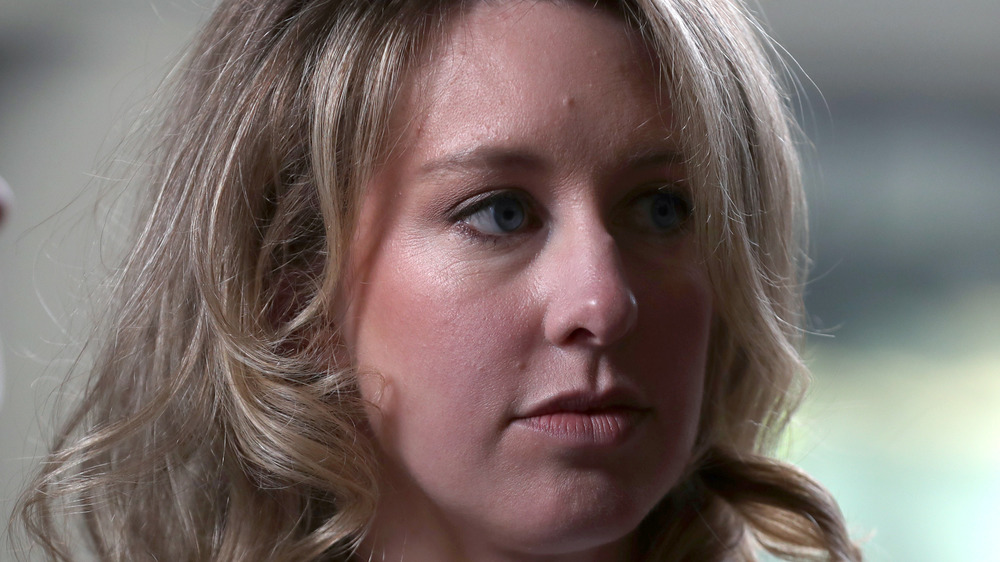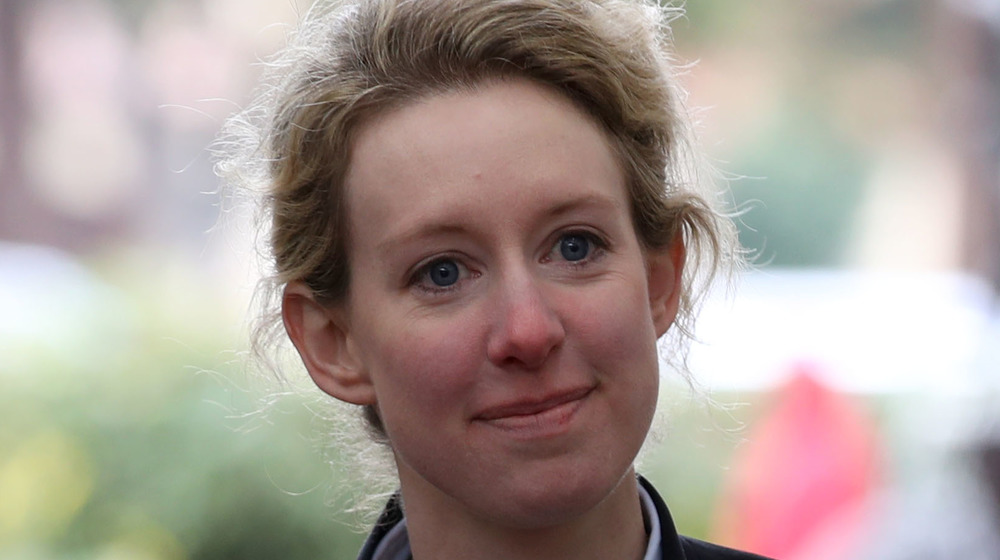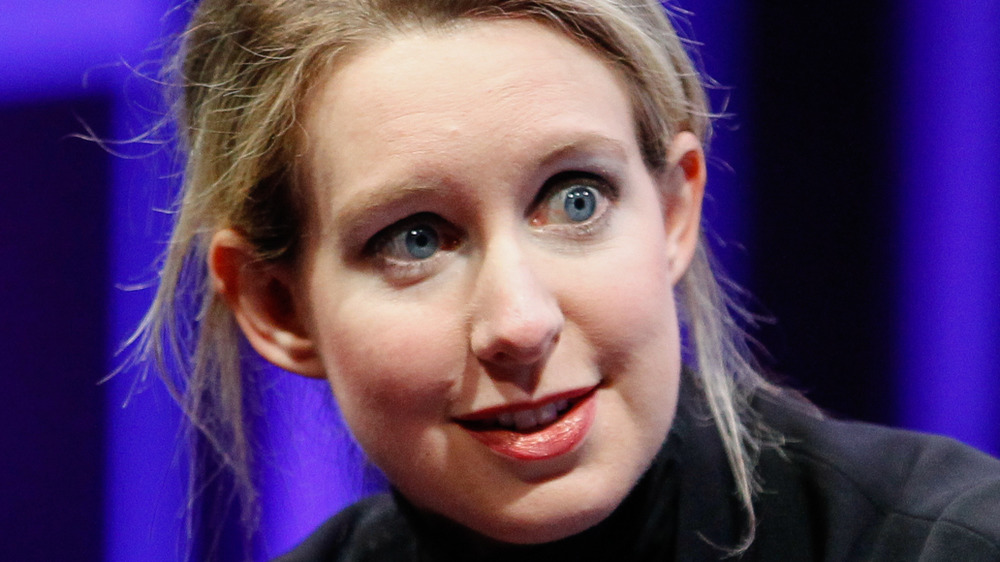The Real Reason Elizabeth Holmes' Trial Has Been Delayed
Following the 2018 disintegration of the health-tech company Theranos and the downfall of Theranos CEO Elizabeth Holmes, much has been made of the years-long, intricate web of lies Holmes allegedly spun to wrangle funding for the invention and production of a groundbreaking medical device — one that, in the end, didn't even exist.
Holmes, who dropped out of Stanford in 2003 at the age of 19 to focus solely on the company she created, was first lauded by the media as the de facto Steve Jobs of healthcare. She used her clout to allegedly lure in high-profile investors and captains of industry, including Rupert Murdoch and the Walgreens corporation. In due course, her spectacular rise within the ranks of the Silicon Valley mirrored the breakneck speed of her decline after it was discovered that Theranos, valued at $9 billion in its heyday, was allegedly a long con to line Holmes' coffers and fund her lifestyle.
The story of Holmes and Theranos — which includes fraud charges that could land Holmes in prison for up to 20 years — has proved to be ripe for public consumption, and it seems the saga isn't quite over. A recent delay in Holmes' upcoming court case, initially scheduled for July 2021, has added yet another twist to the plot. So why has Holmes' trial date been delayed? And what effect could it have on whether she's convicted? Keep on scrolling to find out.
Elizabeth Holmes' defense team shared big news
According to a March 17, 2021 report by CNBC, Assistant U.S. Attorney Robert Leach — who is leading the prosecutorial team's case against Elizabeth Holmes — was approached by Holmes' defense team on March 2 with a request to delay the start date for her trial. The reason? Per CNBC, the former Theranos CEO is purportedly pregnant with a due date in July — the same month her trial for wire fraud and the conspiracy to commit wire fraud was scheduled to begin.
In an interview with the news network, Leach stated that the prosecution team was dumbfounded by the new development, which Holmes' attorneys allegedly did not disclose until approximately five months into her pregnancy. The late disclosure, per Leach, was "frustrating and disappointing to learn" four months away from the initial July trial date. However, both the prosecution and defense agreed to request a delay. A federal judge approved the request on March 17, 2021, CNBC reported.
The rescheduled court appearance is now for August 31, so Holmes can presumably recover from childbirth. So, how might the six-week-delay impact how potential jurors might ultimately render their verdict? Here's what one NBC legal expert had to say.
How Elizabeth Holmes' pregnancy could impact her trial
Further details surrounding the disgraced tech magnate's pregnancy aren't available. However, it is worth noting her romantic link to hospitality heir Bill Evans, who she purportedly married in June 2019 after her release on a $500,000 bail in January of that year. As for the legal implications of the pregnancy? Legal analyst Danny Cevallos told CNBC in March 2021 that Elizabeth Holmes' status as a mother (and a new mother at that) could have a critical impact on her chances of conviction.
"Whether conscious or unconscious, judges, prosecutors, and jurors might worry about the effect of maternal incarceration on a newborn baby in a way that they don't when the defendant is male," Cevallos said on the matter. "Being a new mother can only help get her sympathy from jurors," he added, later noting that "even if her sentencing guidelines call for incarceration" if Holmes is convicted, "her attorneys will place her motherhood front and central before the judge."
In their coverage of Holmes' pregnancy and its possible influence on the case against her, CNBC also cited a study by University of Chicago criminal law professor Sonya Starr. The professor concluded that women are less likely to be convicted or receive a longer sentence than their male counterparts. According to Starr's statistics, "men receive 63 percent longer sentences on average than women do," and that when it comes to sentencing following a conviction, "mentioning childcare reduced judges' probability of recommending prison."



